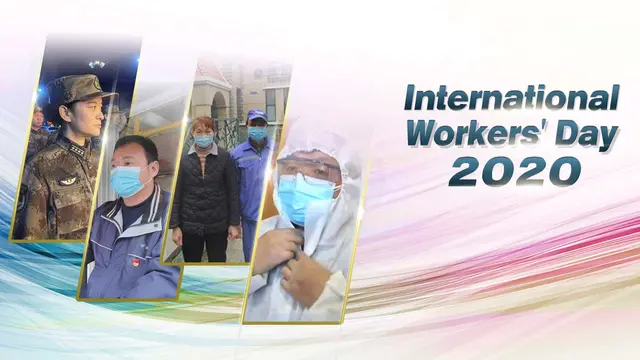
The 2020 International Workers' Day is destined to be an unusual holiday. In the past four months, millions of workers have stick to their positions in the fight against the coronavirus and to safeguard our society. Among them are medical workers, bus drivers, sanitation workers, community volunteers, and so on. Now, the epidemic has eased in most parts of China, and industries across the country began to resume production, so we look back to some stories of coronavirus heroes and helpers to mark Workers' Day today.
The medical worker who fought Ebola 5 years ago joins coronavirus front-line
Song Caiping is a member of the medical team from the Army Medical University dispatched to help treat coronavirus patients at the Wuhan Jinyintan Hospital at the end of January. But that's not the first time she finds herself at the center of a viral outbreak. Five years ago, she was deployed to Liberia to help with the fight against Ebola as part of a medical team from China.
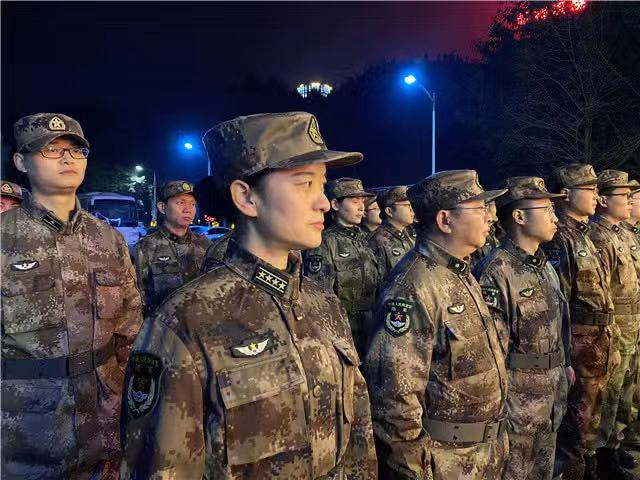
Song Caiping stands with her colleagues outside their hospital before traveling to Wuhan on Chinese New Year's Eve. /Tencent
Song dedicated herself body and soul to the task at hand in Wuhan, and according to her colleague, she slept less than seven hours in the first few nights after arriving in the city. She's been busy teaching young nurses different techniques and encouraging them to be confident.
"Remember, the place where we are standing is our battlefield. As long as we are bold, careful, and intelligent, we can unite to defeat the virus and complete the task," said Song.
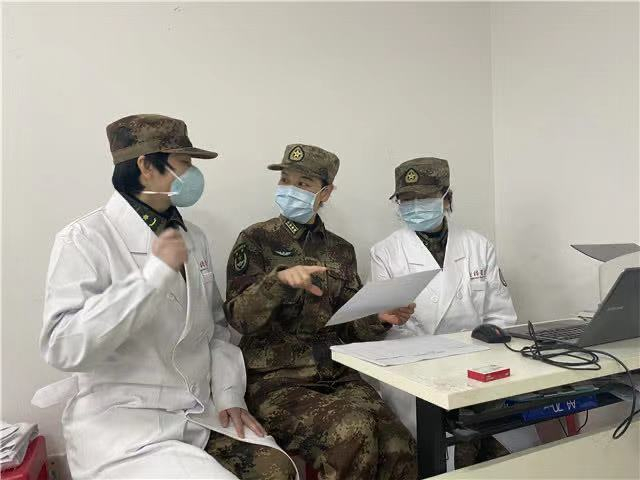
Song Caiping shares her experience with nurses. /Tencent
The bus driver who shuttles medical staff to and from work
During the coronavirus pandemic, China's epicenter Wuhan strictly controlled urban traffic, and all bus lines ceased operation. However, a small number of buses were still running to help front-line medical staff. Nie Sanhua was a bus driver who voluntarily shuttled medical staff between hotels and hospitals every day.

Nie Sanhua drives bus shuttle between the hotel and hospital. /Changjiang Daily
To not to infect his family, Nie lived in the same hotel with medical staff and didn't went home for over one month. There are nine kilometers from the hotel to the hospital, Nie had to do eight round trips a day, and picked up more than 320 people a day on average.
"The bus stopped operating, but I can't stop working," said Nie.

Nie Sanhua packs up his daily needs in preparation to leave the hotel with the medical staff. /Changjiang Daily
Sanitation couple in a makeshift hospital
Fifty-two-year-old Li Yufeng and her husband Su Qiyun are both sanitation workers in Wuhan. On February 5, Jianghan makeshift hospital was completed and began to receive COVID-19 patients. Li learned that the hospital was in need of sanitation workers, so she signed up for the mission without hesitation.
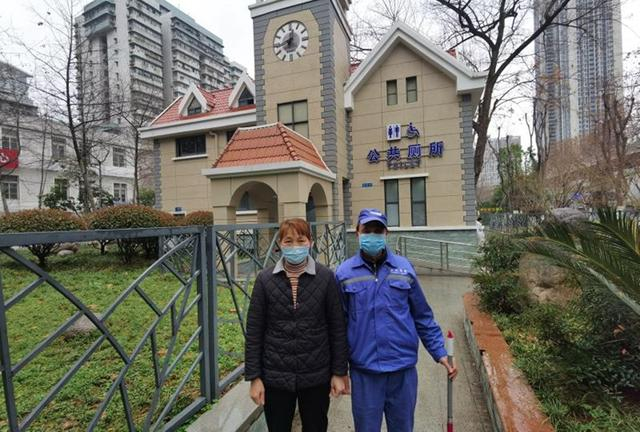
Li Yufeng (L) and Su Qiyun (R). /Chutian Metropolis Daily
Jianghan makeshift hospital has 120 portable toilets and two fixed toilets. Li was selected as the squad leader to disinfect toilets. She said that cleaning the hospital is much harder than cleaning the streets, because the protective suits, gloves, masks, and goggles hindered her movements. Every time Li finished a 10-hour work shift, she was soaked in sweat.
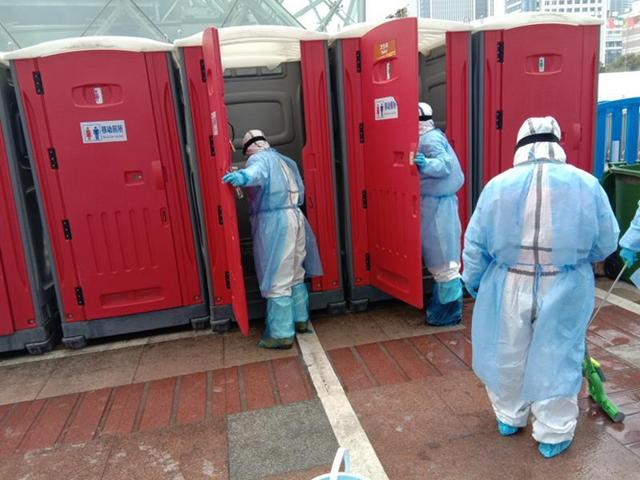
Sanitation workers disinfect portable toilets in a makeshift hospital. /Chutian Metropolis Daily
When Li was disinfecting inside the makeshift hospital, her husband Su was cleaning another toilet outside the hospital. Sometimes they encouraged each other through video calls.
"What a happy thing that we can fight together," Su said with a smile.

Su Qiyun cleans a toilet outside the Jianghan makeshift hospital. /Chutian Metropolis Daily
The community volunteer who purchases medication for residents throughout the city
On February 11, the Wuhan Center for Disease Control and Prevention ordered all residential areas to restrict the movement of people who live there. The move limited access to necessities such as medicine, which could only be accessed through online procurement or distribution by shopping malls and supermarkets. With more than 400,000 people with severe chronic diseases in Wuhan, access to life-saving medicine became a serious problem.
On February 23, Wuhan recruited volunteers to provide food and purchase medication for residents in closed communities throughout the city. Ye Jiusi was one of the volunteers who answered the city's call. Having once worked in the healthcare industry and living with a severe chronic illness himself, Ye was keenly aware of the anxiety and helplessness people living with chronic illnesses felt under such circumstances.

Ye Jiusi takes medicine at home. /CCTV
In the beginning, there were only two severe chronic disease pharmacies in Wuhan. It was Ye's daily routine to start queuing at 2:30 p.m. He would receive the medicine at 10 p.m. or even later. Because some medication was scarce and difficult to buy, Ye rode more than 20 kilometers a day on average.
"As long as there is another patient in need, I will continue to do it," said Ye.
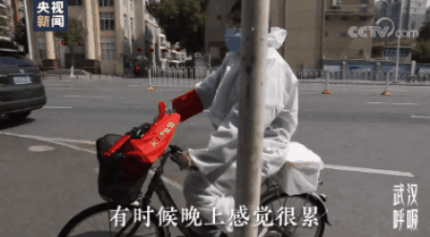
Ye Jiusi rides bike to deliver medicine. /CCTV
Today, May 1, we pay tribute to all the workers who have fought in this battle. We salute their efforts during the COVID-19 pandemic.
 简体中文
简体中文

